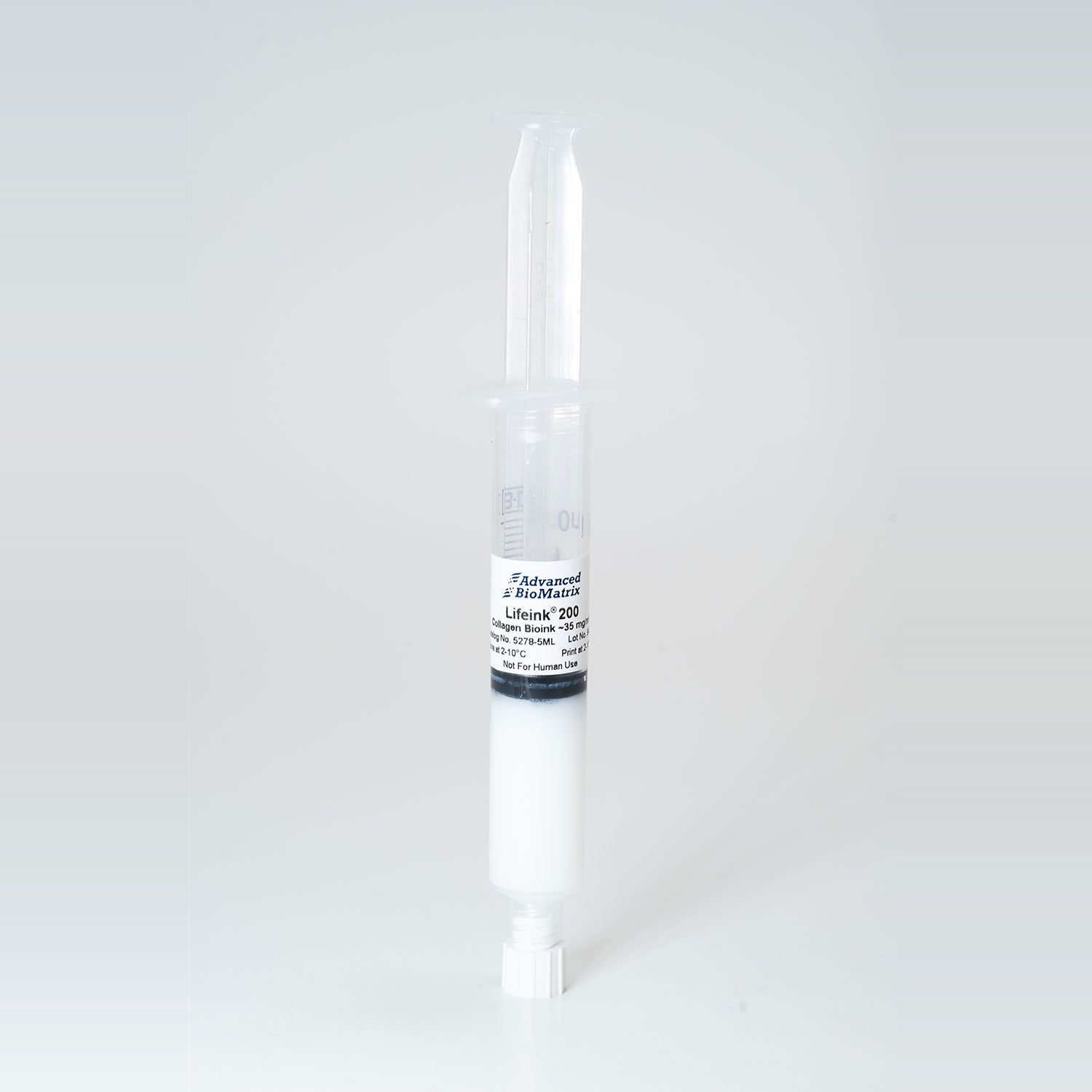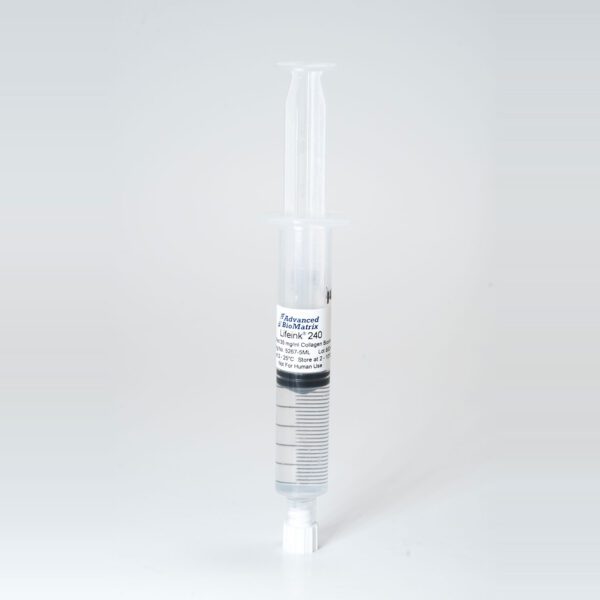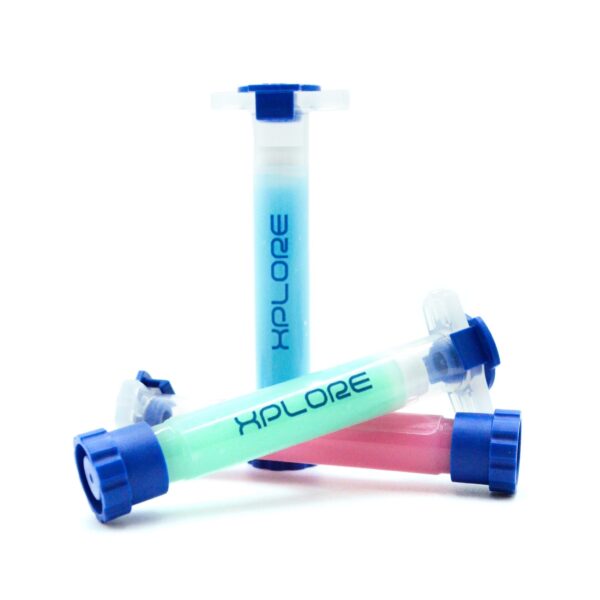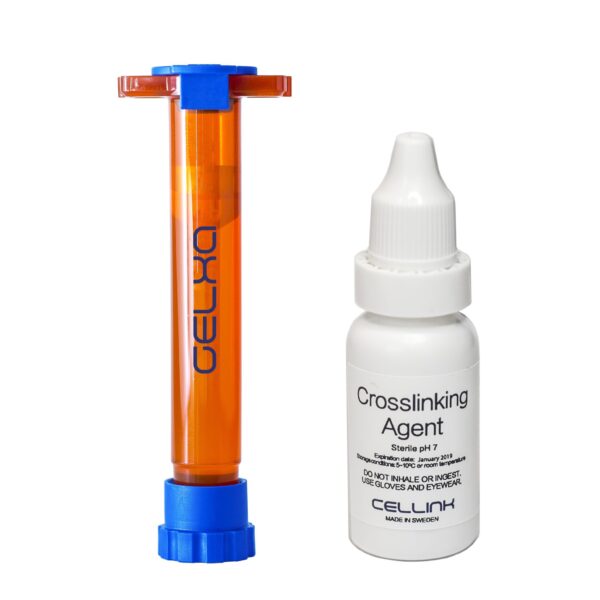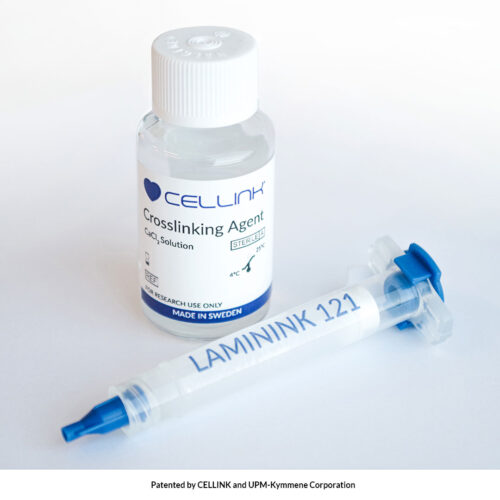Description
For printing with Lifeink® 200, we highly recommend using the FRESH printing technique and printing at 2-8°C. Three dimensional (3D) gels allow for the study of the effects of the mechanical properties of the extracellular matrix (ECM), such as density and rigidity, on cell development, migration, and morphology. Unlike 2D systems, 3D environments allow cell extensions to simultaneously interact with integrins on all cell surfaces, resulting in the activation of specific signaling pathways. Gel stiffness or rigidity also affects cell migration differently in 3D versus 2D environments.
A bioink that resembles life should include the following traits: High Print Resolution, shear-thinning, strong mechanical strength, superior cytocompatibility, allow for cellular remodeling, and is biomimetic. Lifeink 200 fulfills those requirements. Advanced BioMatrix offers Lifeink 200, a bioink that is a 35 mg/ml type I collagen. Lifeink 200 is pH neutral collagen with physiological salt concentration. The collagen starting material is purified using a controlled manufacturing process. Read the groundbreaking publication using Lifeink 200 for bioprinting heart components here.
Lifeink 200 Collagen Bioink has the following characteristics as shown below:
| Parameter, Testing, and Method | Lifeink® 200 #5278 |
| Sterilization Method | Filtration, Aseptic Processing |
| Sterility – USP modified | No growth |
| Form | Opaque Gel/Paste |
| Package Size | 5 mL, 50 mL |
| Storage Temperature | 2-8°C |
| Print Temperature | 2-8°C |
| Shelf Life | Minimum of 6 months from date of receipt |
| Endotoxin – LAL | < 10.0 EU/mL |
| pH | 6.9-7.6 |
| Osmolality (mOsmo H2O/kg) | 290-370 |
| Source Material | Bovine Collagen |
| Electrophoretic Pattern – Coomassie Blue | Characteristic |
| Collagen Concentration – Biuret | 30-45 mg/mL |
| Collagen Purity – Silver Staining | >99% |
| Continuous Flow Extrusion | Pass |
